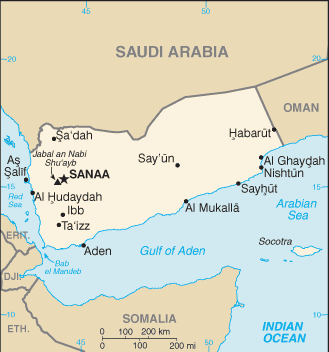The 48-hour ceasefire in Yemen has come and gone, but people may have been forgiven for thinking it never happened at all, as while violence was somewhat down overall, heavy fighting was reported in several areas throughout, and major airstrikes were reported across northern Yemen.
 Despite repeated airstrikes against the capital city of Sanaa by Saudi warplanes, Saudi officials insisted that they did not violate the ceasefire at all, and that every single attack was a perfectly legal retaliation for some rebel violation or other. The Houthis, naturally, say their own attacks were retaliation for what the Saudis did.
Despite repeated airstrikes against the capital city of Sanaa by Saudi warplanes, Saudi officials insisted that they did not violate the ceasefire at all, and that every single attack was a perfectly legal retaliation for some rebel violation or other. The Houthis, naturally, say their own attacks were retaliation for what the Saudis did.
Either way, there was no deal on an extension for the ceasefire, nor indeed any indication that there was serious discussion on the matter. The only public statements from either sides were the ones blaming one another for the deal’s failure.
The ceasefire was accepted by both the Houthis and the Saudis, though the pro-Saudi Hadi government expressed annoyance at the deal, claiming they were not consulted over it. The Hadi faction is also said to be opposed to the UN peace deal aimed at ending the war, on the grounds that it would severely limit Hadi’s power.



